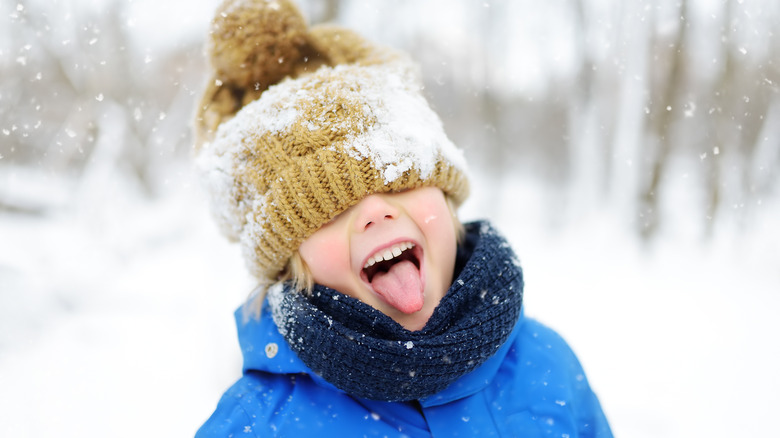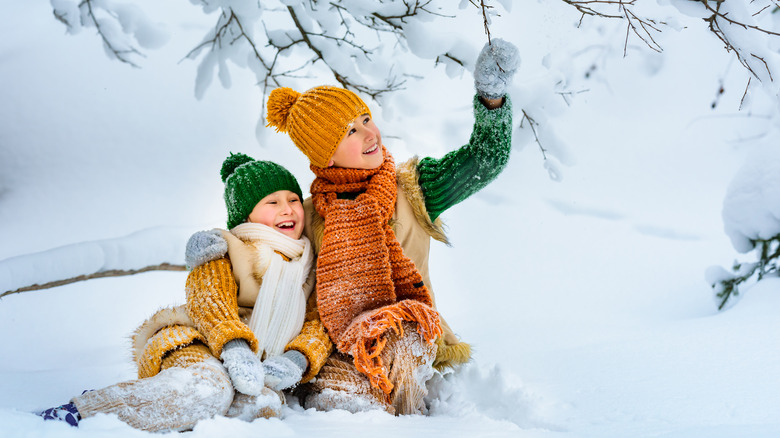Is Eating Snow Bad For You?
Eating snow is practically a rite of passage when you're a kid playing outside in the winter. There's nothing more fun than grabbing a handful of white, fluffy snow and letting it melt inside your mouth. Eating snow doesn't sound like it'd be a bad thing (it's just water, right?) but there may be some health risks associated with this childhood activity.
There are a few things that can affect your snow eating experience. The first is how much you're eating. While a small quantity of snow is probably harmless, you may run into some health issues if you eat it by the bowlful. When snow falls, it picks up pollutants and contaminants on the way down. "Snow contains droplets that will hold onto pieces of dust, tiny bacteria, or other things floating in the air," Mary Scarzello Fairbanks, a meteorologist with National Oceanic and Atmospheric Administration, told Prevention. One snowflake can't hold onto much of that junk, so catching them on your tongue is mostly harmless. However, munching on a packed snowball means a lot more pollutants and bacteria can get into your mouth.
When you eat snow is important too
Because snow acts as sort of an air filter on its way to the ground, the first few minutes of snowfall are going to be the dirtiest. These snowflakes catch the most contaminants as they fall. If you want to eat the cleanest snow, wait until it has been falling for a couple of hours before stick your tongue out (via NPR). Even with that advice, Staci Simonich, a professor of environmental and toxic ecology at Oregon State University, doesn't believe sneaking a handful of fresh snow will cause any real harm. "That being said, I would not hesitate for my children to have the joy of eating a handful of fresh fallen snow from my backyard," she said. Because the pesticide concentrations are low and the amount of snow eaten in a handful is small, the one-time dose is very low and not a risk to health."
What you really want to avoid is snow that isn't pure white. Avoid anything yellow, brown, or discolored, as well as snow that has any physical particles in it. Try to only eat fresh snow that has fallen on top of other snow. That means scooping it out of your yard and not scraping it off your car or windowsill. You should also stay away from plowed snow, which is often mixed with sand and chemicals from the plow.


